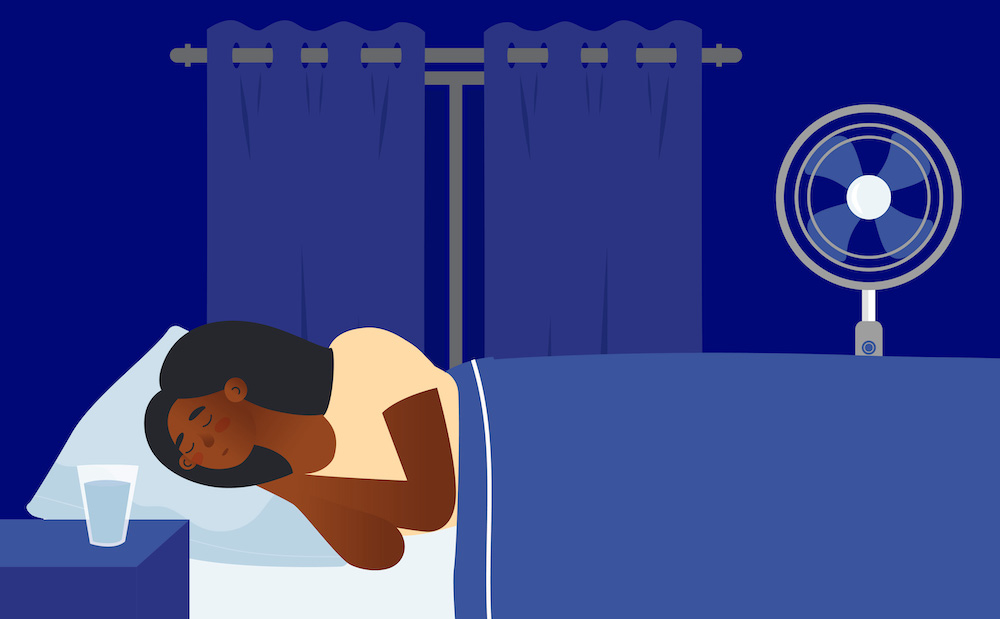In a world of constant chaos and distractions, the importance of a good night’s sleep cannot be overstated. Enter the ultimate guide to sleep hygiene - your roadmap to mastering the art of restful, rejuvenating sleep. From creating the perfect bedtime routine to optimizing your sleep environment, this comprehensive guide will help you reclaim your nights and wake up feeling refreshed and ready to take on the day. So, grab your favorite cozy blanket and get ready to dive deep into the world of sleep hygiene. Your well-rested self will thank you.

Creating a Relaxing Sleep Environment
Having trouble falling asleep at night? is essential for a good night’s rest. Follow these tips to transform your bedroom into a serene sanctuary:
- Keep it dark: Invest in blackout curtains or an eye mask to block out any light that may disrupt your sleep.
- Minimize noise: Use earplugs or a white noise machine to drown out any unwanted sounds that could keep you awake.
- Opt for comfortable bedding: Choose soft sheets, blankets, and pillows that help you feel cozy and relaxed.
- Maintain a comfortable temperature: Keep your bedroom cool and well-ventilated to promote deep sleep.
| Relaxing Sleep Environment Checklist | |
|---|---|
| Darkness | ✔ |
| Noise-free | ✔ |
| Comfortable bedding | ✔ |
| Ideal temperature | ✔ |
By incorporating these elements into your sleep environment, you’ll be on your way to a better night’s rest and waking up feeling refreshed and rejuvenated.
Establishing a Consistent Sleep Schedule
One of the key components of good sleep hygiene is . This means going to bed and waking up at the same time every day, even on weekends. By sticking to a regular schedule, you can help regulate your body’s internal clock and improve the quality of your sleep.
Here are some tips to help you establish a consistent sleep schedule:
- Avoid napping during the day, especially in the late afternoon or evening.
- Create a relaxing bedtime routine to signal to your body that it’s time to wind down.
- Avoid caffeine, nicotine, and alcohol close to bedtime, as they can interfere with your sleep.
By making small changes to your daily routine and prioritizing your sleep schedule, you can improve the quality of your sleep and feel more rested and refreshed each day.
Practicing Relaxation Techniques Before Bed
One of the key components of a solid sleep hygiene routine is . This can help calm the mind and body, making it easier to fall asleep and stay asleep throughout the night.
Some effective relaxation techniques to try before bedtime include:
- Deep Breathing: Take slow, deep breaths to help relax the body and mind.
- Progressive Muscle Relaxation: Tense and then release each muscle group in the body to reduce tension.
- Meditation: Quiet the mind and focus on the present moment to promote relaxation.
By incorporating these techniques into your nightly routine, you can create a sense of calm and relaxation that will help you drift off into a peaceful slumber.
Limiting Exposure to Screens Before Sleep
One of the key factors in promoting good sleep hygiene is limiting exposure to screens before bedtime. The blue light emitted from electronic devices can disrupt our natural sleep-wake cycle, making it harder to fall asleep and stay asleep. To combat this, it’s important to set boundaries and establish a bedtime routine that doesn’t involve screens.
Here are some tips to help you reduce screen time before sleep:
- Set a Technology Curfew: Aim to power down your devices at least an hour before bedtime to allow your brain to wind down.
- Create a Screen-Free Zone: Designate your bedroom as a technology-free zone to promote relaxation and restful sleep.
- Engage in Relaxing Activities: Instead of scrolling through social media, try reading a book, listening to calming music, or practicing meditation to help you unwind before bed.
- Use Night Mode or Blue Light Filters: If you must use your phone or tablet before sleep, consider enabling night mode or using blue light filters to reduce the impact on your sleep patterns.
By implementing these strategies, you can create a healthier sleep environment and improve the quality of your rest. In conclusion, incorporating good sleep hygiene practices into your daily routine can have a significant impact on your overall health and well-being. By following the tips and strategies outlined in this ultimate guide, you can create a conducive sleep environment and improve the quality of your sleep. Remember, establishing healthy sleep habits takes time and effort, but the benefits are well worth it. So, here’s to a restful night’s sleep and a brighter, more energized tomorrow. Sweet dreams!
